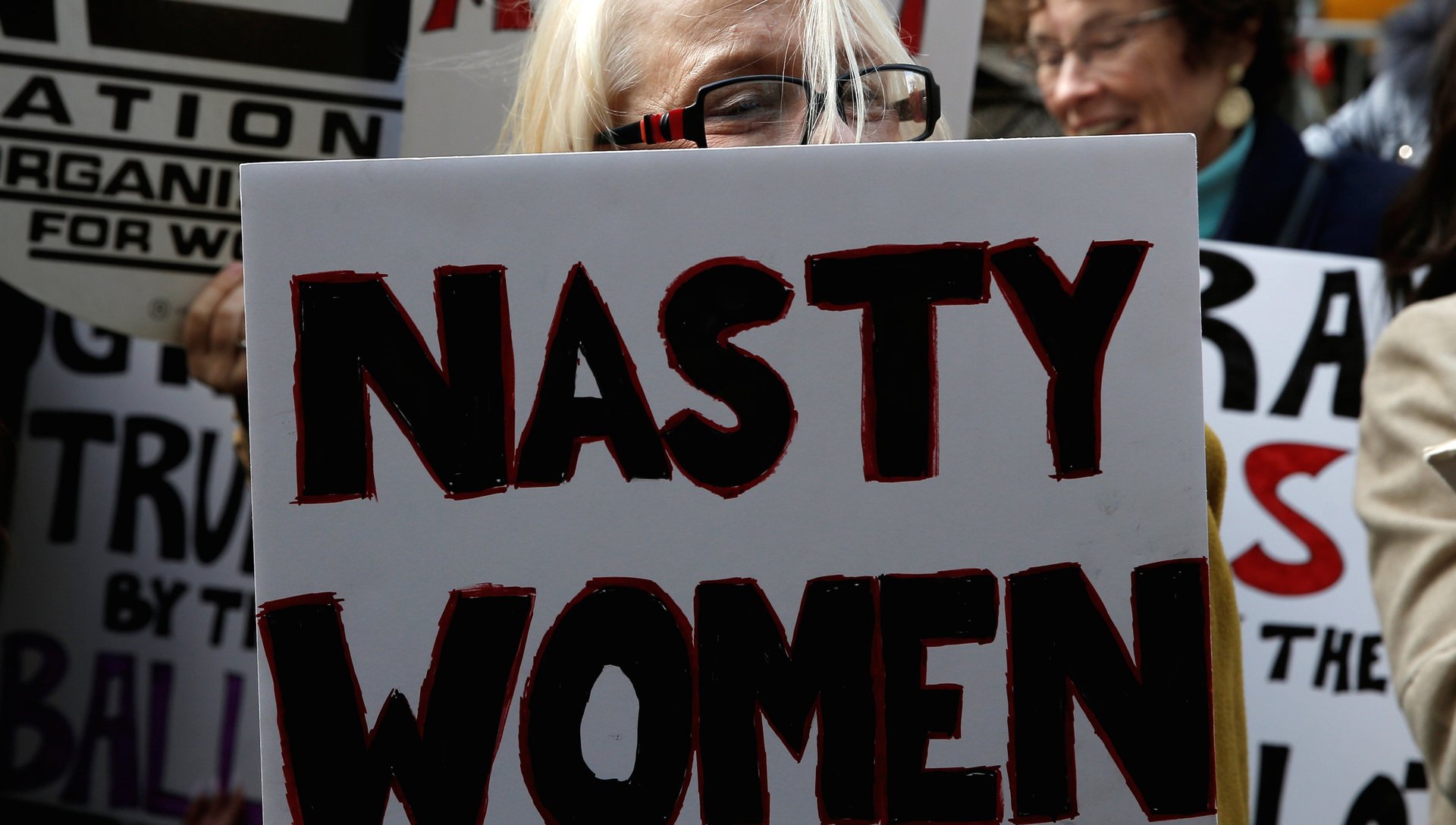Women don’t need men to be powerful—and the Women’s March doesn’t need men to make a statement
Men are not signing up in droves for the Women’s March in Washington DC. Is this surprising?


Men are not signing up in droves for the Women’s March in Washington DC. Is this surprising?
Of course not.
But I propose that men’s lack of attendance is just fine. In fact, this is precisely what the women’s movement needs: a firm realization that our movement—which is a movement, to invoke bell hooks and other like-minded feminists, to end the systemic oppressions of all women—does not need men.
To need something is to make that thing essential to one’s life. Men are not essential to women’s lives. In fact, studies about gun and intimate partner violence suggest that men can be harmful to women’s lives.
Women are powerful on our own. We have the capacity, like men, to be self-sufficient, intelligent, and strong by our own will. We do not need men to breathe, to live, or to survive.
This argument has an ethical purpose: When an entity is labeled as essential or a “need,” that entity is absolved of accountability and responsibility. A need does not require deliberation. A need is primal, even infantile and impulsive. Rather, to be deliberate in our feminist ethics, we should evaluate why we want or need something, then assess that thing’s absolute and relative value to our lives.
As espoused by many of the feminists of yesteryear who have been thrown out with the second-wave bathwater, women do not need men. Without men, we can hold jobs, own homes, and raise children; while men add value to many women’s lives, their value is not essential. Likewise, women can hold a successful march to protest oncoming assaults on women’s rights without male involvement.
This does not imply that men cannot be allies or that they are not useful to the women’s movement or its cause—they can be, but women must be able to find ways to thrive even if they are not.
Call it a bit of lesbian thinking, if you will.
Of course, many will disagree with me. As Gloria Steinem noted in her accurate, albeit maligned, reflection on why women flock to Trump, which I bluntly paraphrase as: Women go where the men are. Steinem’s theory may not be true of all women, particularly not young women, but does accurately classify those who rely on men, or have been conditioned to believe that their lives require men. For evidence, look no further than the 2016 US presidential election: 42% of American women voted for a horrifying misogynist over a feminist woman who declared frequently that Black Lives Matter.
The racial divide in 2016 presidential voting patterns reinforces Steinem’s theory. While 53% of white women voted for Trump, only 4% of black women followed suit. The New York Times’ Irin Carmon offers a smart explanation for this disparity:
If white women of all education levels were more susceptible to Mr. Trump’s nostalgic, macho transactionalism, perhaps it was because they are adjacent to the men who have traditionally enjoyed the most resources and power in society, and who either believe they have lost it or fear losing it.
By contrast, black women, who overwhelmingly voted for Mrs. Clinton, were 14 percentage points more likely than white women to see themselves as leaders—and 23 points more likely to be the primary wage earners at home…. These women’s lives, whether by necessity or choice, already belie the fiction that a man’s job is to provide and not much else.
Mr. Trump also won married women, for whom it may cost more to challenge the men in their lives.
More black women than white women see themselves as leaders. More black women than white women are the primary wage earners in their families. Thus one could argue—for reasons steeped in America’s long history of slavery and emasculation of black men—that black women know they don’t need men. As Carmon observes, black women, unlike white women, have not “traditionally enjoyed the most resources and power in society,” as such resources and power are historically reserved for men, whether black or white.
Instead, through history black women consistently exalt the value of feminism and forming alliances with other women. Note the Combahee River Collective, which began talking about intersectionality decades before it became a 21st century identity politics buzzword. The importance of black feminism to American culture and politics is critical, as it emboldens a truth many women, even feminists, may challenge today: Women can stand on our own.
The women’s movement has appropriated sentiments of black feminism as it continues to expand its key priorities to include issues like reproductive rights and justice, sexual assault, and rape. The ethos behind activism on these issues—“Hands off my body!” “Yes Means Yes!”—should be incorporated within the women’s movement at large. To invoke another popular feminist phrase about our strength, determination and agency: “Yes We Can!” Women are in control of their lives, their bodies, their actions and behaviors—and, yes, their marches.